Radical Role Models: Weibo Ludwig, Self Sufficient Eco-Saboteur
Ludwig waged war against the oil and gas industry following the poisoning of his family. The documentary that tells his story is free to watch for readers of Biocentric for a limited time.
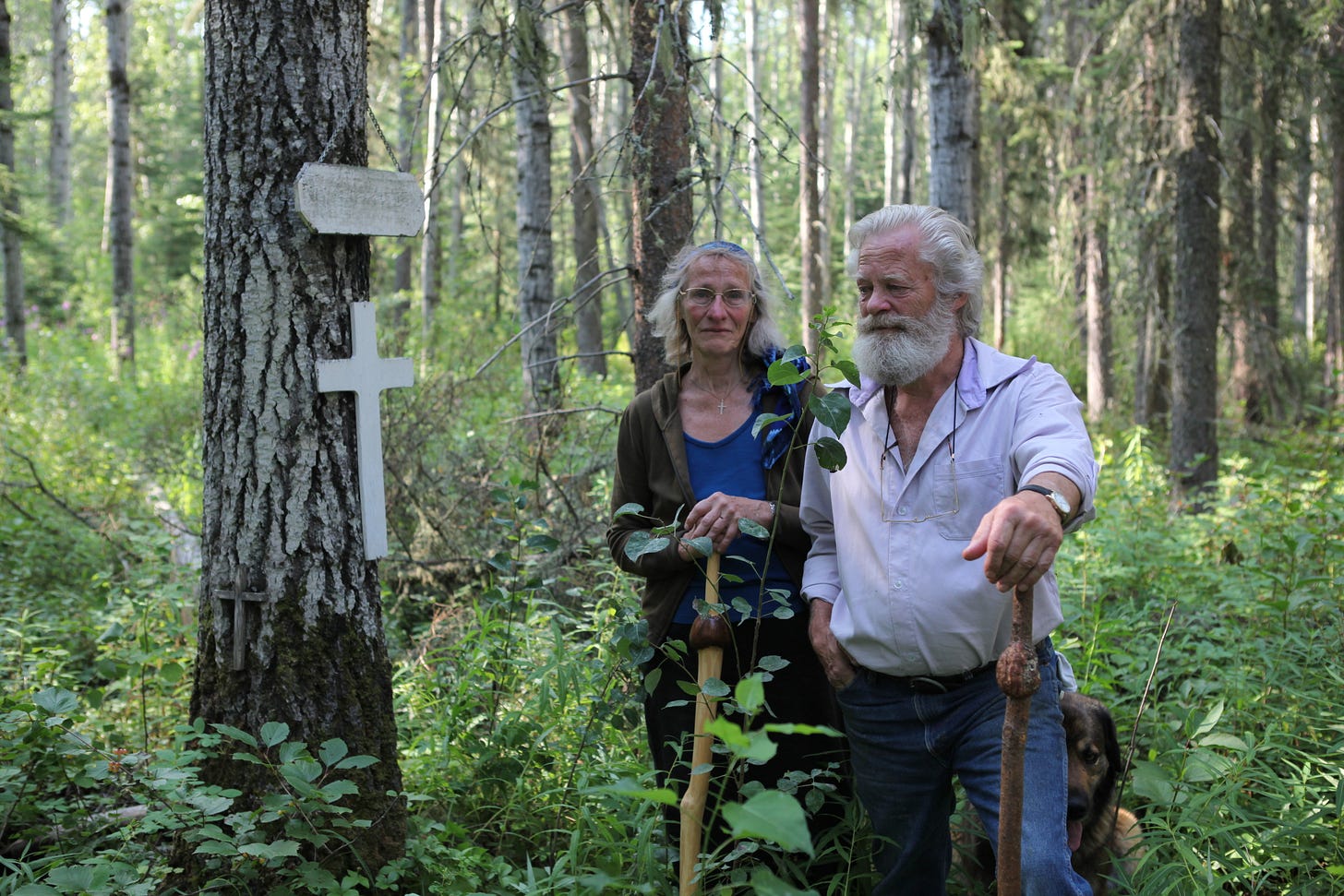
Welcome to Biocentric, a newsletter about sustainability, overshoot, greenwashing, and resistance. It’s written by me, Max Wilbert, the co-author of Bright Green Lies: How the Environmental Movement Lost Its Way and What We Can Do About It, co-founder of Protect Thacker Pass, and organizer with the Community Legal Environmental Defense Fund.
If you want to follow, you can subscribe for free. Paid subscribers, in return for supporting this publication and the activism you see here, receive access to private posts which contain behind-the-scenes reports and unreleased drafts.
This is the first installment in a new series called Radical Role Models. In it, I profile individuals throughout history who have taken courageous stands for what is right. We will begin, for no particular reason, with Weibo Ludwig. Ludwig was a deeply religious man who moved to a rural part of northern Alberta in 1985, to found a small Christian community in the wilderness, and ended up the most notorious Canadian eco-saboteur in history.
As one story describes:
In 1985, Reverend Wiebo Ludwig moved to Alberta's Peace River region, about 500 kilometres northwest of Edmonton, to insulate his alternative Christian community from the madness of modem life. But in 1990, civilization, in the form of several oil and gas companies, came calling. For six years, Ludwig peacefully raised disturbing questions about property rights, the environment and the toxic nature of sour gas. About a third of all natural gas in BC and Alberta is sour and contains dangerous concentrations of hydrogen sulflde, a cyanide-like poison.
Following the arrival of the oil and gas wells nearby, there were five miscarriages and stillbirths among the women in his community, many more among their livestock, and a spate of rashes, headaches, and other sicknesses. The community was forced to evacuate the farm several times due to potentially-fatal gas leaks. As these disasters struck one after another, Ludwig and his community appealed to the provincial and national government and regulatory authorities — without avail. Their backs against the wall, Ludwig decided to strike back.
After two sour gas leaks resulted in a score of animal deaths and the miscarriages of two women [at first], Ludwig had had enough. When the Alberta Energy Co. Ltd. (AEC) proposed to do seismic testing near his aquifers in 1996, he warned the firm (the natural gas giant reported revenue of $6 billion last year) not to proceed. When another company, Norcen Energy Resources Ltd., started to drill a new well north of his farm, the family barricaded the road, just as aboriginal bands are now blocking access to oil and gas properties in northeastern BC.
Ludwig faced a choice: to give up, or to contest these wells and attempt to stop the violence they represented to his community, or to roll over. Guided by a morality which sees a higher law than the unjust ones written down in Capitol buildings that legalized the killing of his community’s unborn children and poisoning of living children, the same sort of morality that led Dr. Martin Luther King, Jr. to write that "Law and order exist for the purpose of establishing justice, and... when they fail in this purpose they become the dangerously structured dams that block the flow of social progress" and that led John Brown to lead the attack on Harper’s Ferry, Ludwig and his community chose to fight.
"If the oil companies run roughshod over your lives, you have to take defensive action against them, whatever is necessary... You can't just let them kill your children," Weibo said
Over more than a decade from the mid-1990’s and 2008, Ludwig (likely) orchestrated a campaign of eco-sabotage waged against the oil and gas industry. One bombing took place just two days after one of the miscarriages. I saw likely because Ludwig was only convicted of being part of two sabotage actions out of hundreds that occured in the region, most recently in 2017, after his death. These actions included arson, the cementing of well-heads, slashing of tires, smashing of windshields, laying of nails on roads, theft of equipment, sledgehammering and rifle attacks on oil company property, pipeline and oil well bombings, and other forms of property destruction that caused at least ten million dollars in damage and likely far, far more. Throughout, Ludwig and his community also harangued public officials, protested publicly at well sites, and made a ruckus in every way possible.
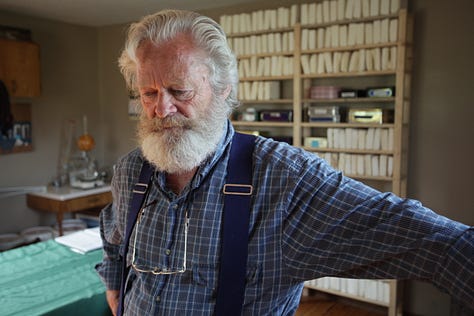
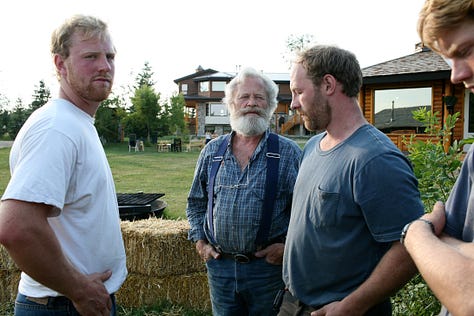
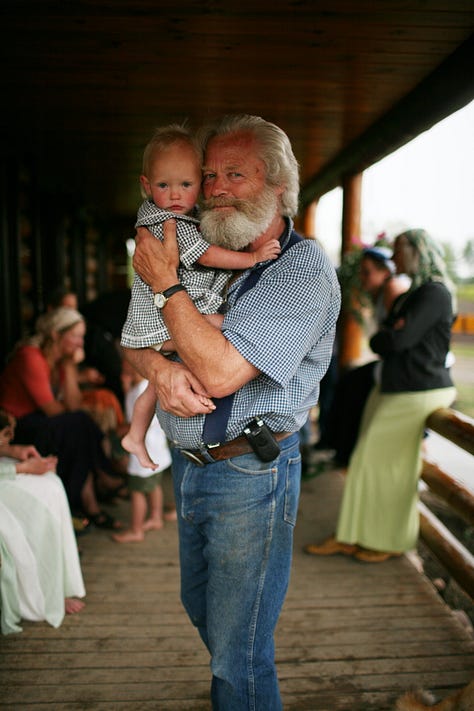
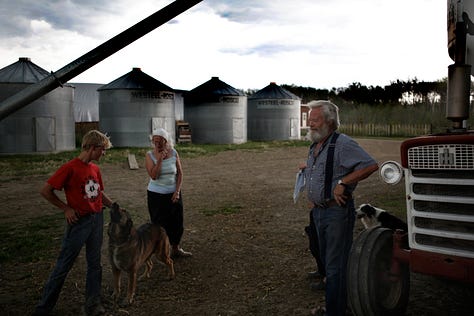
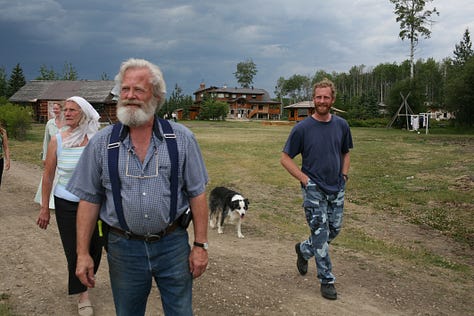
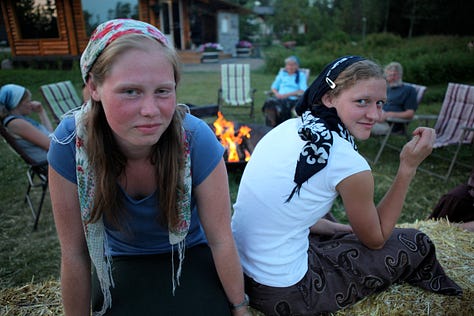
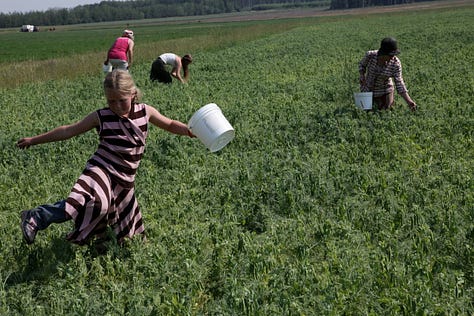
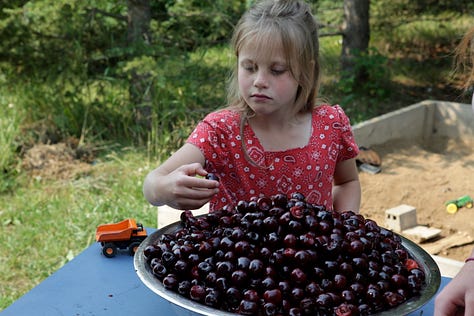
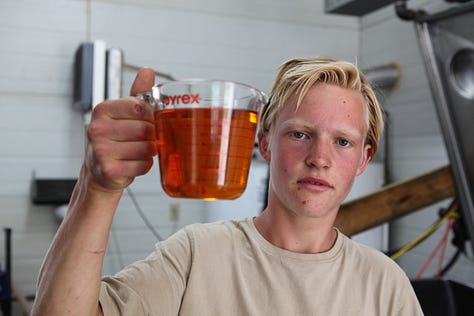
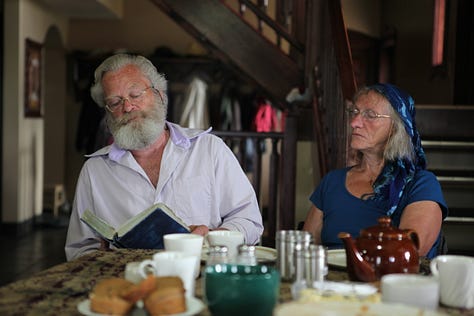
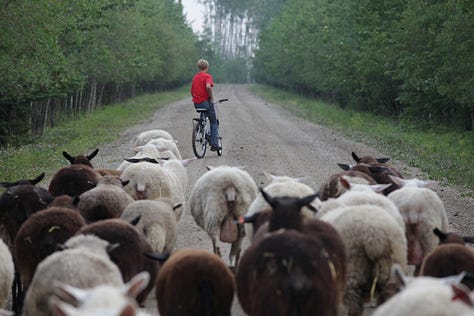
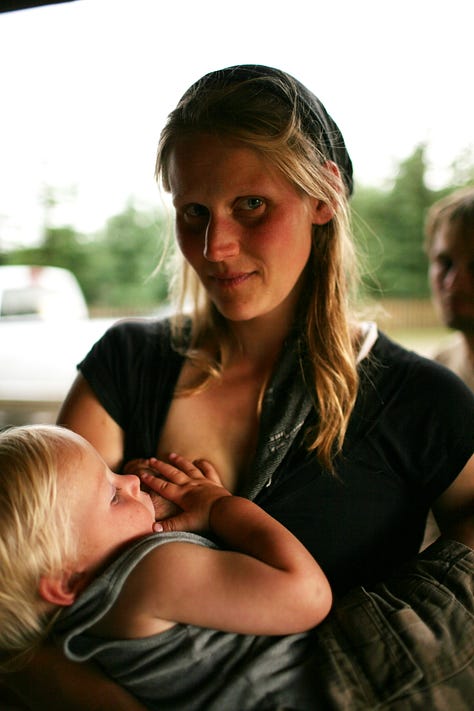
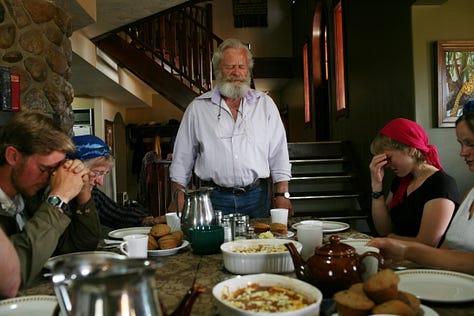
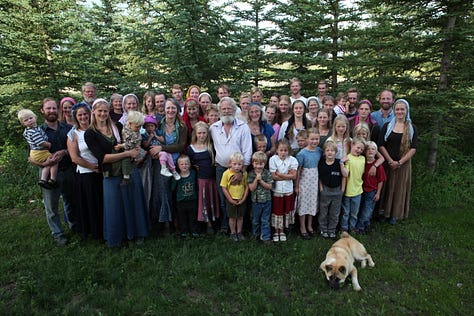
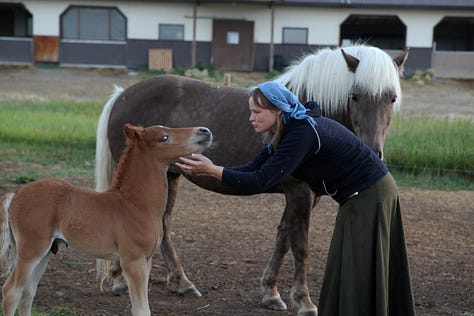
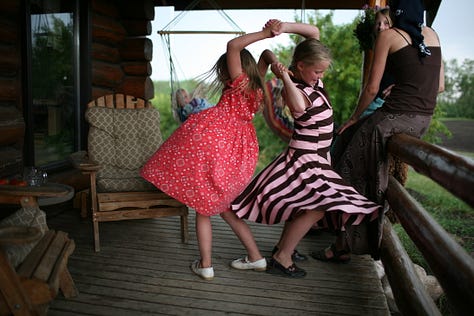
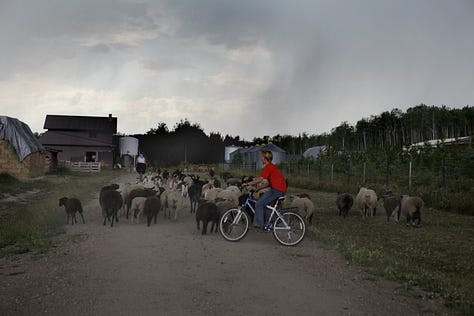
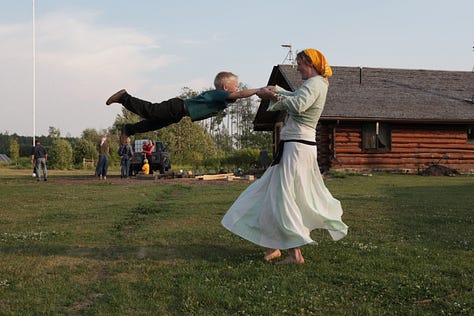
Ludwig died in 2012. I’m sure I would find many places of disagreement with his worldview, not least on the role of women. But what I have read and seen shows a compassionate and caring man, a flawed human being pushed to edge. I find his story very inspiring. As Chris Hedges wrote, “Ludwig grasped the moral decadence of the consumer society, its unchecked hedonism, worship of money, and deadening cult of the self.” And he decided to take action based on this understanding.
And yet, despite the fact that it was the oil and gas industry which poisoned Ludwig’s family, leading to miscarriages, serious illness, threats to life, and the deaths of livestock, the state did not criminalize, charge, or even fine the oil and gas companies. Instead, they pursued Ludwig and his community relentlessly, raiding their property five times, surveilling them from afar, sending undercover agents to entrap them, and mobilizing the public against them.
Make no mistake: the state is not on our side.
For a limited time, the director of the 2011 film Weibo’s War, Toronto-based David York, has made his film free to watch for Biocentric readers. This film is currently unavailable to watch elsewhere. The video can’t be embedded in this post, so click the button below to watch. It will only be available until September 17th, 2025.
Discussion questions
Were Ludwig’s actions justified? How should we respond when the state protects unjust behavior while criminalizing basic forms of community and self-defense?
What is the role of religion and spirituality in radical environmentalism and liberation movements throughout history? As a starting place, look at Jessica Reznicek. How does one’s spiritual beliefs relate to courage? What are your personal spiritual beliefs, and do they lead you towards or away from bold action in these times?
What strategies and tactics did Weibo and his community allegedly use? How did state surveillance and private security interfere with these methods? How could a community like Ludwig’s maintain security?
How have state and private surveillance and data gathering techniques changed since this film was made? Would the same methods allegedly used by Ludwig be effective today? If not, how could they be modified to be safer and this more effective?
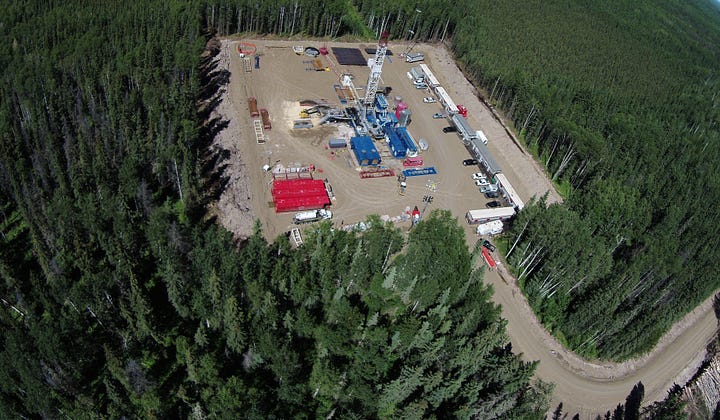
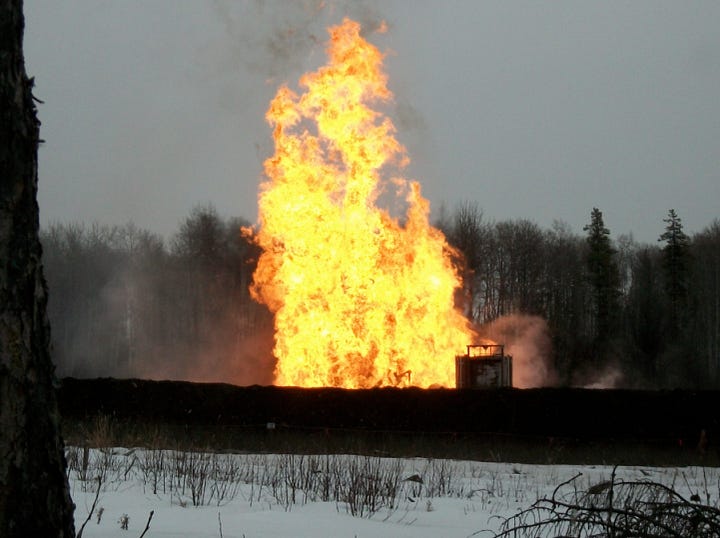
For more information
For those interested in more on this story, you can ready Bryon Christopher’s reporting on the topic. Christopher was the only journalist Ludwig trusted — and reading his website, I can understand why. Or, you can read Andrew Nikiforuk’s 2014 book on Weibo, Saboteurs: Wiebo Ludwig's War Against Big Oil. The foreword to Nikiforuk’s book was written by
.




This has me in tears. What brave and persevering people.
Thanks for sharing this fascinating and heartbreaking story. I was not familiar with Wiebo Ludwig and his experiences, and I feel this invites me to a lot of reflection and processing.